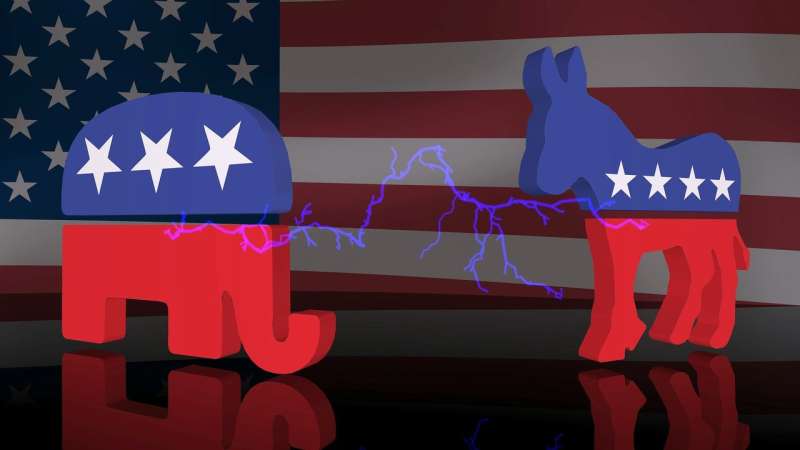Voters shrug as energized House Democrats vow action on climate

Polls show climate change still lags health care, jobs, immigration and the federal budget deficit among voters' priorities.
But Democrats, under pressure from activists on the left, plan to make it a marquee issue when they take over the House of Representatives next month. It's a strategy with some peril for a party that lost its majority in the chamber after, among other things, passing a sweeping cap-and-trade bill in 2009 that died in the Senate.
"The risks are that it can be divisive," said Kalee Kreider, a one-time adviser to former Vice President Al Gore. If Democrats put forward a package that doesn't include both new ideas for combating global warming as well as policies focused on jobs and workers it could squander momentum and split the party's base, she said.
Party leaders have already vowed to convene hearings on the Trump administration's efforts to roll back Obama-era climate rules, and Democratic Leader Nancy Pelosi has promised to revive a special House committee focused on global warming. But a rowdy class of freshman are demanding the party go further and back the adoption of a "Green New Deal" that includes a transition to 100 percent renewable energy.
The issue of climate change attracts young voters and presents a contrast with President Donald Trump, who has called it a hoax and promised to bring back carbon dioxide-spewing coal. Hundreds of young protesters have stormed Capitol Hill to demand action on the issue and oppose West Virginia coal champion Sen. Joe Manchin from becoming the top Democrat on the Senate Energy and Natural Resources Committee.
"The new Dem Majority will #ActonClimate," Rep. Steny Hoyer, the House's No. 2 Democrat, said on Twitter Monday after climate protesters staged a sit-in in his office.
The issue plays well with the Democratic base: 69 percent of liberal Democrats said global warming would be a very important issue in determining their vote for a congressional representative in 2018, according to a survey by Yale and George Mason Universities released earlier this year.
But when all registered voters are included, fewer than four in 10—38 percent—said the issue was very important to their vote and just 2 percent said it was the most important consideration. Among self-described conservative Republicans, it came in dead last on a list of 28 issues.
"The two parties are more polarized on climate change right now then they are on abortion," Anthony Leiserowitz, director of the Yale Project on Climate Change Communication, said in an interview.
Yet it continues gaining importance with every election cycle, said Nathaniel Stinnett, head of the Environmental Voter Project, a non-partisan voter outreach group. More environmentalists are turning out on Election Day and more reliable voters are paying attention to the environment, he said.
"Politicians go where the votes are, it's that simple," Stinnett said. "When you have an increasing number of environmentalists showing up to vote—and they're not just Democrats, but also independents and moderate Republicans. Well, everyone is going to scramble to try to react to that because the one thing all politicians have in common is that they like to win elections."
The urgency for Democrats is bolstered by record-breaking wildfires in the West, a string of devastating hurricanes and a landmark report released last month by the Trump administration that projected climate change will end up costing the U.S. economy hundreds of billions of dollars a year.
Opponents aren't so sure it will be a winner for the party.
"The more they prioritize this over workers and wages, the more they send the message to the working middle class that they don't really care about your priorities any longer," said Tom Pyle, president of the American Energy Alliance, a free-market advocacy group. "The more they focus on climate change and the 'Green New Deal,' the higher risk they have of losing the working class."
"They will lock those voters into the Republican base for as far as they eye can see and I think that is their biggest risk: Abandoning the working class for the latte class," he said.
But there are divisions within the caucus. Progressives, such as Rep.-elect Alexandria Ocasio-Cortez of New York, want to see the select committee on climate change empowered to craft legislation, which is an authority that New Jersey's Frank Pallone, head of the House Energy and Commerce Committee, is reluctant to hand over. Ocasio-Cortez, and an army of progressive backers are pushing for more spending on renewable energy, while others led by Florida Rep. Ted Deutch are pushing for a carbon tax.
For this Congress to make anything become law, it will have to be bipartisan since Republicans control the Senate and White House. Much of what the Democrats in the House do will be positioning for 2020 when Democrats have a chance to take back both.
"One of the challenges at the moment is what is actually viable," said Jon Krosnick, a professor of political science at Stanford University. "To the extent the Democrats endorse some policy approach and then they can't make it happen is not going to play well. Democrats actually have to deliver on their policies."
©2018 Bloomberg News
Distributed by Tribune Content Agency, LLC.

















